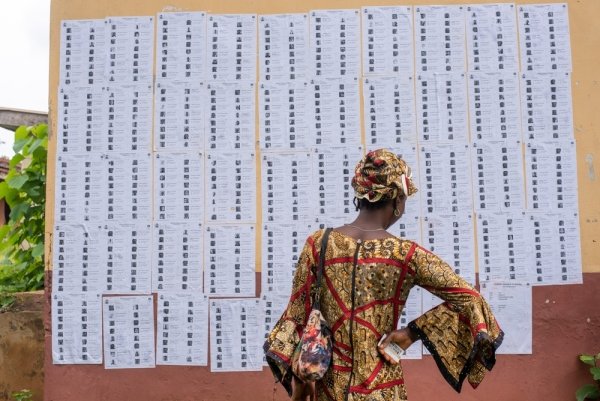STILL TO Come THIS WEEK
 |
Wednesday, Nov. 13 // 11:00 am–12:00 pm (ET)
Access to clean and reliable water remains a critical challenge for the people of El Salvador, Guatemala, and Honduras, where issues such as water scarcity, pollution, and inadequate infrastructure are exacerbating poverty and threatening food security. These three countries face common challenges driven by mismanagement, climate change, and a lack of comprehensive water governance. The event will also highlight ongoing efforts in civil society and government aimed at protecting water resources and strengthening environmental justice in the region.

Thursday, Nov. 14 // 10–11:45 am (ET)
On October 1st, Claudia Sheinbaum made history by becoming the first woman to assume the Mexican presidency, marking a significant milestone for the nation. The upcoming webinar will feature a panel of experts examining her initial approach to national security. The discussion will delve into her administration's security framework, highlighting both new initiatives and key policy adjustments that define Sheinbaum’s strategy. Panelists will evaluate her administration’s early days, providing insights into how effectively she has responded to Mexico's most pressing security concerns, including the dynamics of cooperation and coordination with the United States.

Thursday, Nov. 14 // 10–11:00 am (ET)
Russia's war against Ukraine caused severe disruptions to Ukraine's economy: a drastic drop in output, refugee outflows, and damage to infrastructure and production facilities. Meanwhile, the Ukrainian government has been struggling to balance its capacity to fund and supply its defense effort with keeping the civilian economy going and continuing to provide basic public services. Western financial assistance has been crucial to propping up Ukraine's public finances. What is the current state of Ukraine's economy? With the war continuing to inflict damage on Ukraine's industry, agriculture, and infrastructure, how sustainable is the current model? What are the critical factors for Ukraine's economic success after the war? How will the EU accession process mitigate and assist Ukraine's post-war economic transition?

Thursday, Nov. 14 // 1–2:30 pm (ET)
This event will focus on the individuals and events at the founding of the Kennan Institute in 1974. The challenge we face with Russia today is not unlike 1974, in that the national conversation about the region focuses entirely on politics and security.

Thursday, Nov. 14 // 4–5:30 pm (ET)
When World War II ended, about one million people whom the Soviet Union claimed as its citizens were outside the borders of the USSR, mostly in the Western-occupied zones of Germany and Austria. These “displaced persons,” or DPs—Russians, prewar Soviet citizens, and people from West Ukraine and the Baltic states forcibly incorporated into the Soviet Union in 1939—refused to repatriate to the Soviet Union despite its demands. Thus began one of the first big conflicts of the Cold War. In Lost Souls, Sheila Fitzpatrick draws on new archival research, including Soviet interviews with hundreds of DPs, to offer a vivid account of this crisis, from the competitive maneuverings of politicians and diplomats to the everyday lives of DPs.

|





